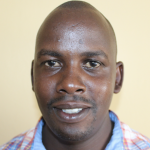The 428 students and 15 staff of Kaptieni Primary School face challenges with no water source on their school property, causing students to waste valuable time each day collecting water off the school grounds.
There are two community water sources used to meet their daily water needs: a stream and a spring. The water from the stream is used to clean classrooms and latrines, and the water from the spring is used for drinking, but both places require a lot of work to collect questionable water.
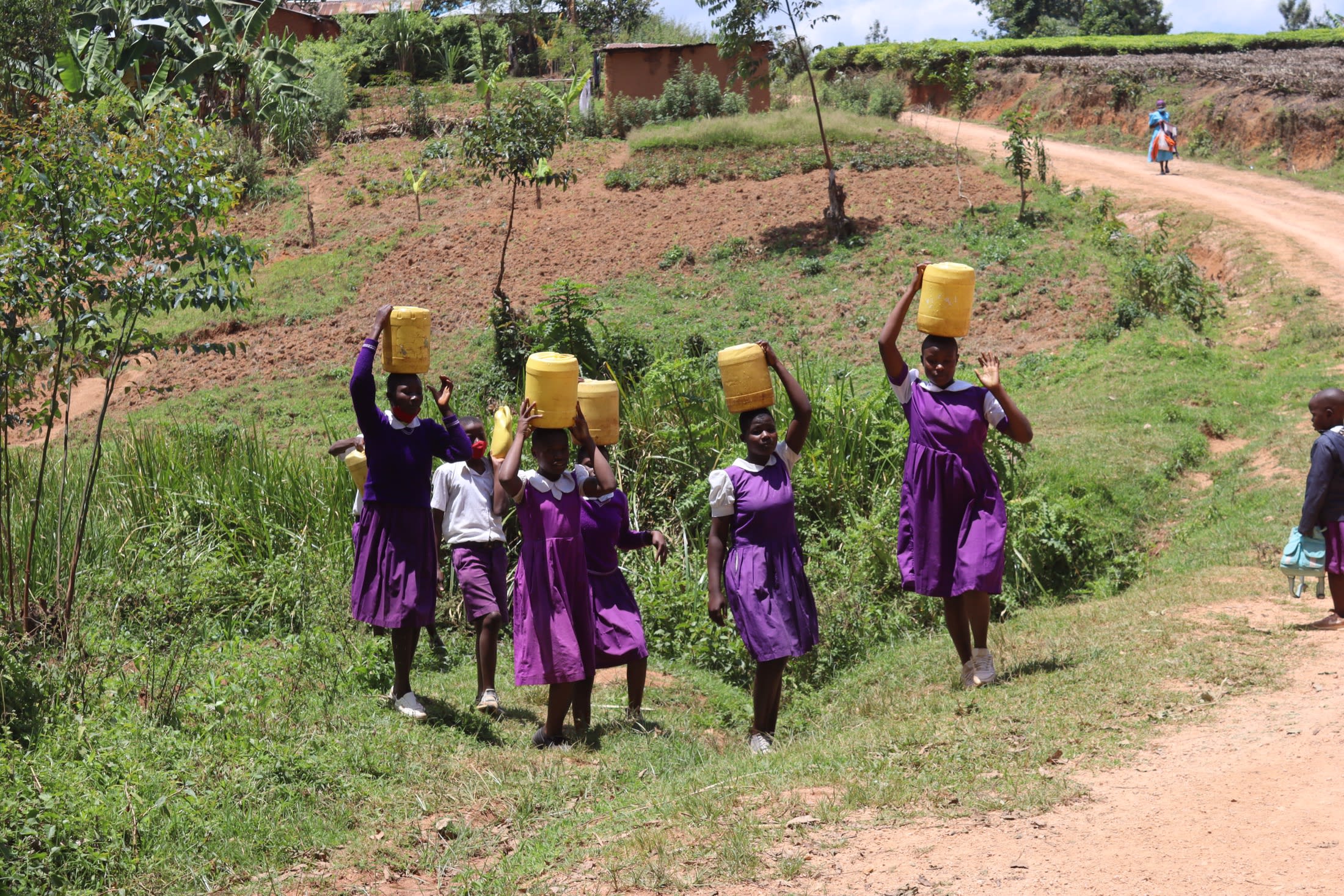
"When water comes from improved and more accessible sources, people spend less time and effort in physically collecting it, meaning they can be productive in other ways." - WHO
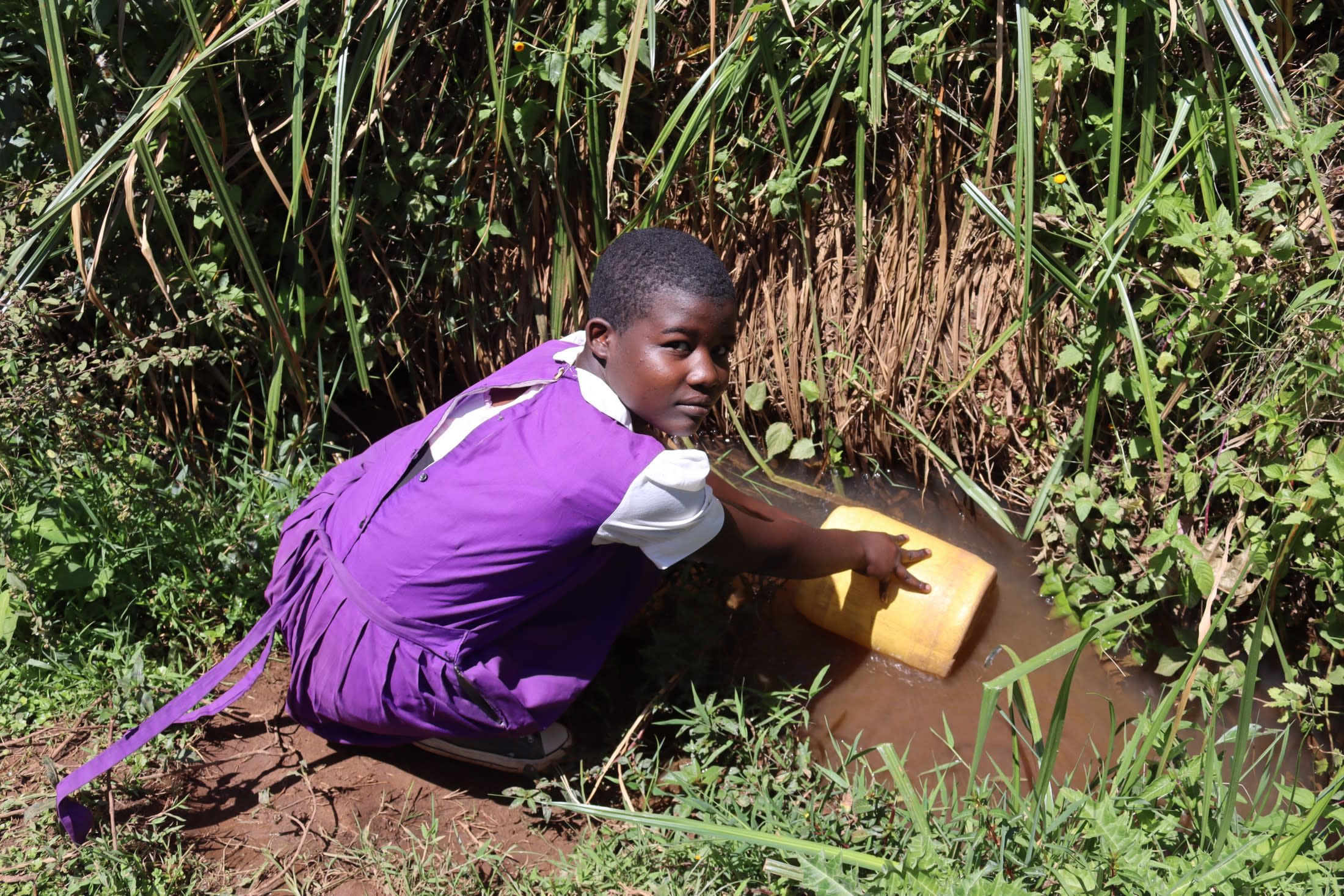
The surface water from the stream is dirty because it is exposed, and those living near it contaminate it with their day-to-day activities like farming, washing clothes, bathing, and allowing their animals to drink.
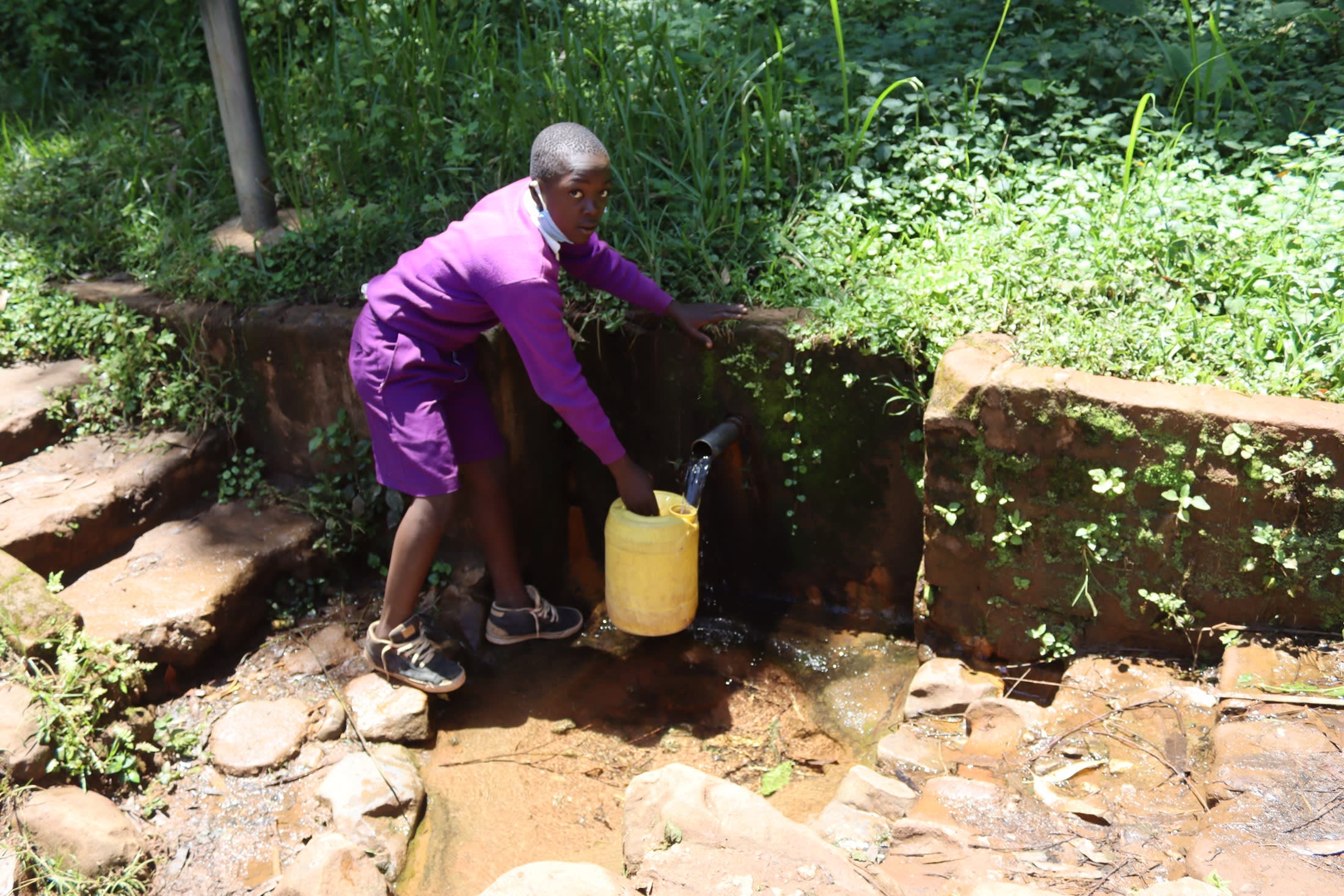
It seems the spring was protected in the past, but in its current weakened state, the water is less than ideal for consumption.
When we spoke to the headteacher, 42-year-old Maurice Too (shown below), he said, "Lesson interference as a result of sending students out of the school to fetch water has been one of the greatest challenges, which, at one time, almost brought conflict to teachers themselves, and I had to intervene."
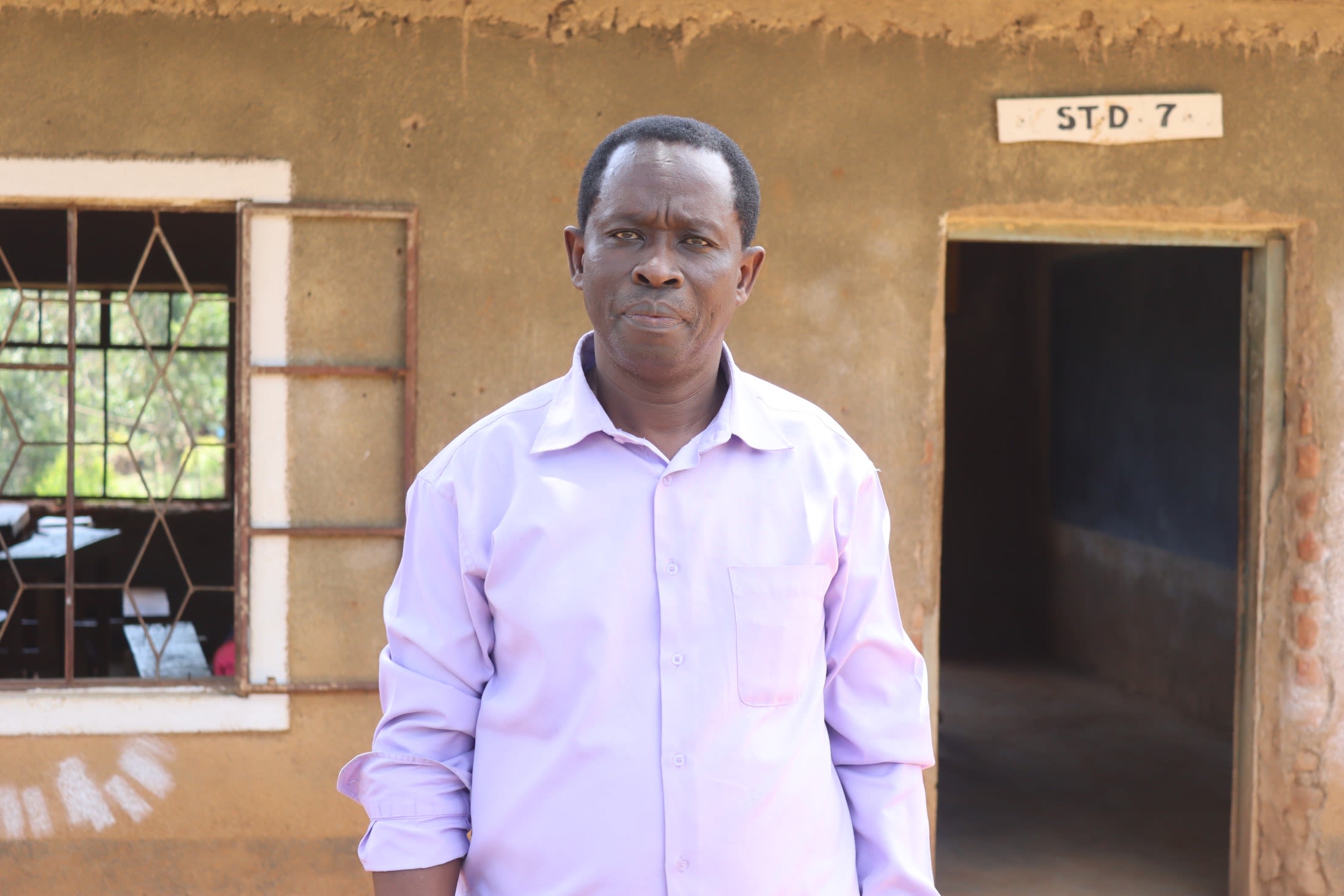
And 16-year-old student Margaret M. (shown below) agreed. "I have not been getting enough time to complete my homework because of the similar water challenge at my home. And when I arrive at the school in the morning trying to finish my assignment, we are also being sent for water outside the school compound, leaving me in [a] dilemma."
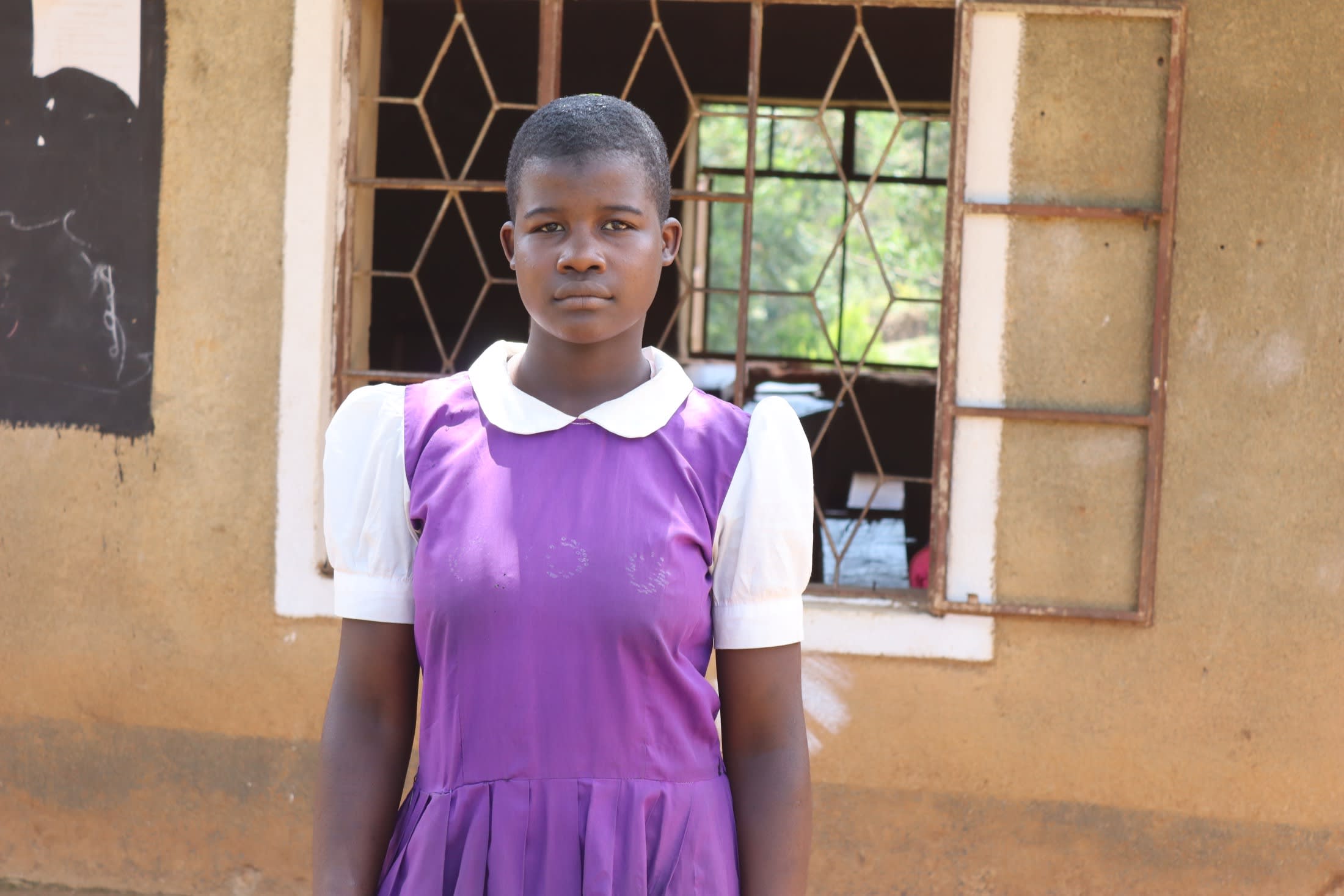
Mr. Too also shared, "Some students have left [the] school for another neighbouring school which does not have water challenges as we do have here. Also, most of the students lack [the] morale of coming to school. Some have developed a negative attitude towards schooling because they hate going for water outside the school compound. Going for water outside is tiresome and consumes a lot of students' precious time for studies."
He continued: "Besides that, the ministry of education wants us to have enough water for washing hands to fight [the] COVID-19 pandemic in the school. Yet they don't provide support for the installation of a reliable water point in the school, so we have been straining to make sure we have water for washing hands and fit all [the] chores in the school, hence wasting a lot of time scheduled for lessons."
"The school is in dire need of a reliable water point in the school compound, and getting a borehole with a hand pump will help them have access to safe water not only for drinking but also for general chores within the school throughout the school year," concluded our field officer Jonathan Mutai.
What We Can Do:
New Well
We conducted a hydrogeological survey at this school and the results indicated the water table beneath it is an ideal candidate for a borehole well. Due to a borehole well's unique ability to tap into a safe, year-round water column, it will be poised to serve all of the water needs for this school's large population, even through the dry months.
The school will help collect the needed construction materials such as sand, rocks, and water for mixing cement. They will also provide housing and meals for the work team, in addition to providing local laborers. We will complement their materials by providing an expert team of artisans and drilling professionals, tools, hardware, and the hand-pump. Once finished, water from the well will then be used by the school's students and staff for drinking, handwashing, cooking, cleaning, and much more.
Handwashing Stations
The student health club will oversee the two new handwashing stations we will provide, and make sure they are kept clean and in working condition. The club leaders will fill the handwashing stations with water daily and make sure they are always supplied with a cleaning agent such as soap or ash.
VIP Latrines
We will construct two triple-door latrine blocks using local materials that the school will help gather. Three doors will serve the girls and three doors will serve the boys. All of these new latrines will have cement floors that are designed to be easy to use and to clean. And with a borehole right on school property, there should be enough water to keep them clean.
Training on Health, Hygiene, COVID-19, and More
We will hold a one-day intensive training session with students, teachers, and parents. This training will cover a wide range of topics including COVID-19 symptoms, transmission routes, and prevention; personal and environmental hygiene; and the operation and maintenance of the borehole, latrines, and handwashing stations. There will be a special emphasis on handwashing.
Our team of facilitators will use a variety of methods to train, including participatory hygiene and sanitation transformation, and asset-based community development. We will initiate a student health club, which will prepare students to lead other pupils into healthy habits at school and at home. We will also lead lectures, group discussions, and provide illustrative handouts to teach health topics and ways to promote good hygiene practices within the school including handwashing and water treatment. We will then conduct a series of follow-up trainings before transitioning to our regularly scheduled support visits throughout the year.
We and the school strongly believe that all of these components will work together to improve standards at this school, which will help lead to better student academic performance and will help unlock the opportunity for these students to live better, healthier lives.






 Borehole Well and Hand Pump
Borehole Well and Hand Pump
 Rehabilitation Project
Rehabilitation Project













